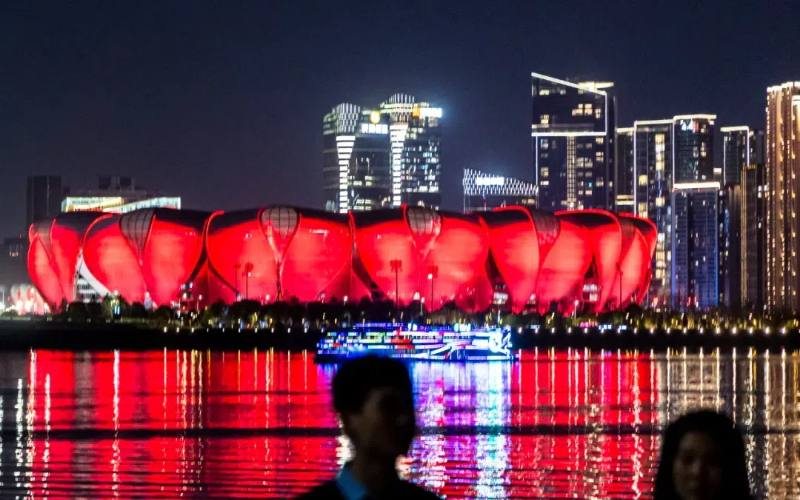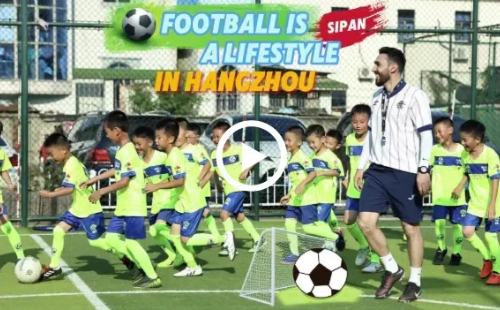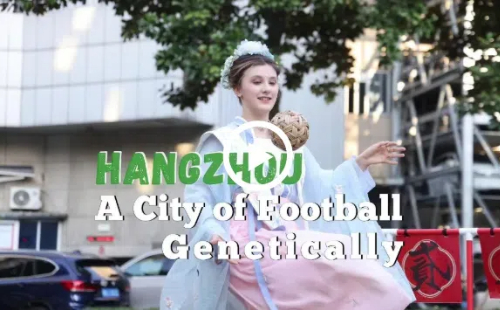Master Hongyi's Collection of Seals and His Friends
Born Li Shutong in October 1880 in Tianjin, Master Hongyi was one of the most talented painters, dramatists, calligraphers, musicians, seal cutters and poets. As a pioneer of China's New Culture Movement, Li taught at the Zhejiang Secondary Normal School (predecessor of the Hangzhou High School) in 1912, before joining the Xiling Seal Art Society in 1914. It was during his stay at the society that Li was introduced to the Hupao Temple and ordained as a Buddhist monk on the thirteenth day of the seventh month in the lunar calendar in 1918.
Shortly before Li became a monk, he donated his entire collection of seals to the Xiling Seal Art Society. In line with tradition, Ye Weiming, one of the founders of the society, specially carved a niche on the stonewall along the Hongxue Path on the Solitary Hill, and put the seals in the niche. Covering the niche was a small stone tablet on which two characters "Yin Cang" (Seal Collection) were engraved. Beside these characters were six lines of postscript written in lishu that explained the purpose of the collection: "May [the seals] stay with the lake and the hill forever".
In 1963, on the eve of the 60th anniversary of the founding of the Xiling Seal Arts Society, 94 seals from the collection were retrieved to prevent them from suffering from damage caused by prolonged periods in storage. They were among those seals regularly used by Li Shutong.
Born Ge Zhong in 1867, Ge's courtesy name was Pengyun, which he preferred to use in public. He also went by the name of Bohu, and sometimes used the signature "Hengshoutang Ge". Ge Kunhua (1836-1882), Pengyun's father, taught at Harvard and was the university's first instructor from China. His mother a Manchu, was born in Zhejiang's Ningbo city.
Although Ge stayed at Harvard for only three years, he is remembered for his three "firsts": he was the first instructor from China to stand on the Harvard podium, the author of the first textbook on Chinese culture written by a Chinese for Western readers, and laying the foundation for the Harvard-Yenching Library by contributing the first collection of books. Two photos of him can still be found on the wall of the library, which contains the most comprehensive East Asian collection in the Western world.
Among Ge Kunhua's family members when they travelled to the US was his son Ge Pengyun, who was 12 at the time. Having received a good Western education, Pengyun was able to help his father with transcribing during their time in Boston. In 1882, after his father passed away, Pengyun went back to Shanghai and studied at the Anglo-Chinese Methodist College before he was enrolled in Harvard the next year. On September 18, 1899, he established the Anglo-China Society in Shanghai.
It is at the Society that Li Shutong was said to have studied English under Ge Pengyun for over six months. Ge had already been an old friend of the extended Li family back when he worked in Tianjin. To show his gratitude, Ge carved the seal No. 1769, one of his very rare works, and sent it to Li Shutong as a gift. Li was apparently very fond of the seal as it had been used in a number of his personal letters and calligraphies. Ge Pengyun was not only a good orator, but a political activist. In 1900, he and his family were forced into exile and lived in Japan for some time after the ill-fated Hundred Days' Reform. He died in 1927.





 play
play